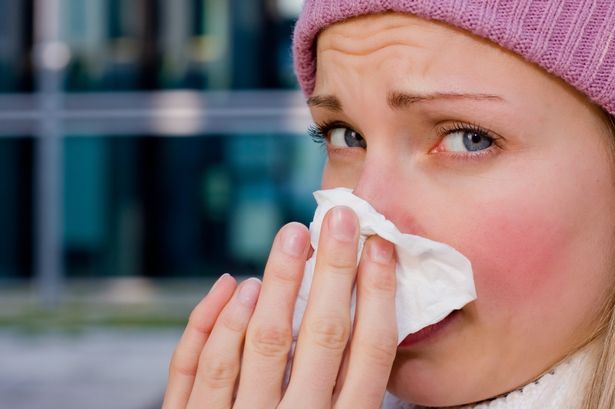The NHS flu vaccine programme is now under way with all eligible people able to book their free jabs. However, there are two groups of people who may need to avoid getting the vaccine (Image: Getty Images)
(Image: Getty Images)
The NHS flu vaccination programme has officially started, with all eligible individuals now able to book their complimentary jabs.
The vaccine is typically suitable for most people to receive, however there are two categories that may need to exercise caution or avoid the vaccination entirely.
Official guidance advises that anyone feeling poorly or running a high temperature should postpone getting the vaccine until they recover.
The vaccine can temporarily impact your immune system, and if your body is already battling an illness it may struggle to respond properly if you receive the jab whilst moderately or severely unwell.
It can also make it more difficult to distinguish whether you are experiencing side effects from the vaccine or symptoms of your existing illness, reports Yorkshire Live.
The NHS flu jabs remain available until March 31, 2026, and whilst receiving it earlier can offer protection during the height of flu season, it may be wise to delay your jab until you’re feeling well again.
The second category of people who may be advised against the flu jab are those who have experienced allergic reactions to previous flu vaccines or components within the vaccine.
The official guidance states: “Most people who are eligible for the flu vaccine can have it.
“You only cannot have the vaccine if you’ve had a serious allergic reaction to a previous dose of the vaccine or an ingredient in the vaccine. Some of the flu vaccines used in the UK contain egg protein. Tell the person vaccinating you if you have an egg allergy.”
There are various types of flu vaccines given in the UK, based on your age bracket. The ingredient lists are accessible for all vaccines online.
Individuals who qualify for the complimentary flu vaccine:.
It’s possible to arrange appointments for these free jabs by telephone or online via the NHS. Some chemists might also provide walk-in slots after 1st October.
People can also secure a flu vaccination by getting in touch with their GP practice or through the NHS App if they’re 18 years old or above. Your doctor can verify whether your medical conditions might make you entitled to the jab if you’re uncertain.
The vaccination may trigger some adverse effects, though these ought to be minor and improve within one to two days. This might involve tenderness at the injection site, general muscle pain and a slightly elevated temperature.
The flu jab typically requires up to a fortnight to become effective, and there remains a possibility you could contract flu following vaccination, but this will probably be a less severe form of the illness and can assist you in recovering more quickly.
The NHS observed: “Protection from the flu vaccine goes down with time and the types of flu virus the vaccine protects against are updated each year. This is why it’s important to get the flu vaccine every year.”
Our ChronicleLive Daily newsletter is free. You can sign up to receive it here. It will keep you up to date with all the latest breaking news and top stories from the North East.

